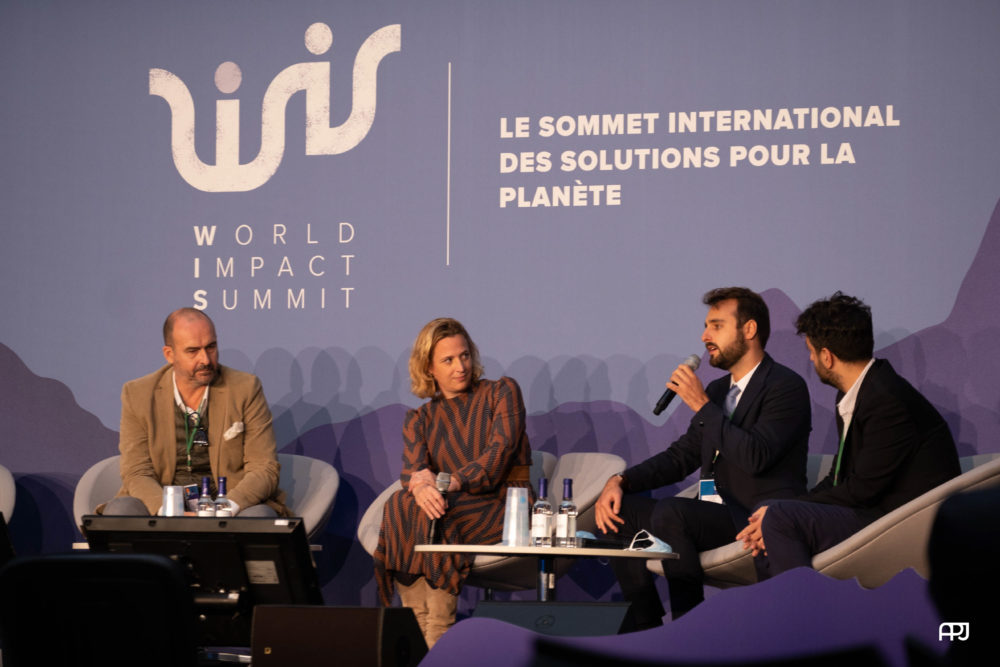For our 5th edition of the WIS, we will welcome our partners, speakers and exhibitors around the question: How to innovate differently?
Find out the details of the first three themes that will be discussed on Wednesday, November 30th with impact professionals!
Wednesday, November 30th – Morning
Preservation of natural environments: protecting and regenerating our ecosystems
Climate change and its consequences, regularly announced in the IPCC reports, require us to rethink our management models for natural environments. Biodiversity is our common heritage and our capital for the future. We must preserve it because it protects us; beyond its own value, it provides essential services in our daily lives:
- pollination
- water and air purification
- protection against the risks of marine submersion and flooding
- food quality and diversity
- resilience in the face of climate change
- improvement of the living environment…
Preserving biodiversity means looking after a natural capital on which our survival and quality of life depend.
What are the innovative solutions to preserve our natural environments despite the development of human activity? What can we learn from nature? How can we achieve carbon neutrality? How can we better manage water resources? What is the cost of inaction?
Wednesday, November 30th – Afternoon
Territorial development and recovery: revitalizing our spaces
Rethinking the development of our spaces allows us to make them more attractive, to protect our ecosystems, especially from global warming, to review our management of natural resources and to adapt uses to the population and its growth.
The need to build a positive impact growth model and support circularity within territories is therefore a major issue in the question of development and preservation of natural resources while promoting the creation of new economic sectors (new materials, eco-design, recycling, reuse, etc)
Based on the concept of frugality, territories can then reconcile ecological and social issues while controlling costs and the use of raw materials.
The ecological and energetic transition, because it pushes us to reinvent ourselves, to anticipate risks and to question the links that unite us, contributes to the revitalization of the territories.
How can we revitalize and convert desirable territories for their inhabitants? How does digital technology contribute to shaping our lifestyles and our territories? What is frugal urbanism and how does it meet the challenges of transition in our cities? How can we make sustainable and ecological development a lever for attractiveness?
Wednesday, November 30th – Afternoon
Responsible Finance and Governance : rethinking our models
Finance is the set of mechanisms that provide the economy with the capital it needs to function. It plays a key role in the competitiveness and wealth of a country because its objectives are to ensure optimal use of resources and thus improve the well-being of all. However, access to a higher standard of living can only be achieved if the environment and natural resources, which are becoming increasingly scarce, are taken into account.
In order to support the real economy and long-term projects, sustainable finance favors financial operations that take into account extra-financial criteria called ESG criteria: environmental, social and governance. These criteria are the basis of CSR and responsible governance policies of organizations. They include the analysis of the impact of companies’ activities in terms of carbon emissions, biodiversity protection, waste management, etc.; societal impacts; and the set of rules that govern the way companies are controlled and managed.
Financing a socially just ecological transition is therefore a major challenge for the future of our societies.
Can we reconcile economic performance with social and environmental impact? Are ESG criteria sufficient to guide those who want to invest in responsible companies? What are the steps towards responsible governance? What sustainable solutions for financing impact solutions? What initiatives should be taken to accelerate the transformation of the financial sector and change European and French rules, while opposing any green and social-washing?
Find the program of the second day of the event here!
To answer all these questions, and many more, and to discover concrete solutions for our future, meet us on November 30th at the Palais des Congrès for the 5th edition of the World Impact Summit !
